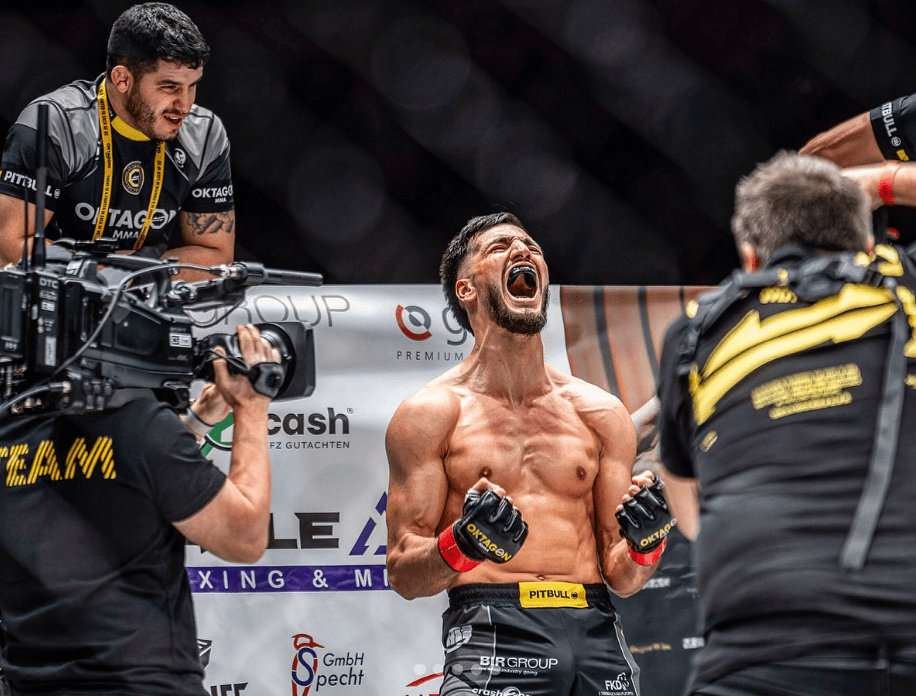
""It's like my own fault. I was many times in jail because of some fights on the street," Dulatov said. "If you beat someone or punch someone on the wrong place, you will get problems and I learned on the hard way. And that's the reason why it took so long to get to the professionals.""
""I'm from Chechnya, we don't come from like usual country. We grew up with fighting; we grew up with like our adults, our big brothers and family teach us to be a man. A man has to know how to fight, a man has to protect his family like this," he explained. "And with this mindset, I come to Germany. It was very fast, everything, someone says something, you say what's going on, you fight him, you beat him. But it's Germany, we are not in Chechnya.""
""Man, to be honest, it's a big honor, because like you said, it was a hard start here. We flew as refugees, so we come to Germany, we don't have the best start," Dulatov explained. "But right now I see German people on the street, you know, they say you make us proud, you make our country proud, people like you, you are refugees.""
When the announcer calls Tamerlan Dulatov's name at Oktagon 76 the German flag will appear next to his name. He was born in Chechnya and emigrated to Germany as a refugee. Early years in Germany included street fights and multiple jail stints driven by cultural norms that value fighting and protecting family. Those incidents delayed his progression to professional MMA. Over time he adapted to German norms, avoided further legal trouble, and pursued a pro career alongside his brother Islam, who fights in the UFC. German public support now recognizes him and his family with pride.
Read at Cageside Press
Unable to calculate read time
Collection
[
|
...
]